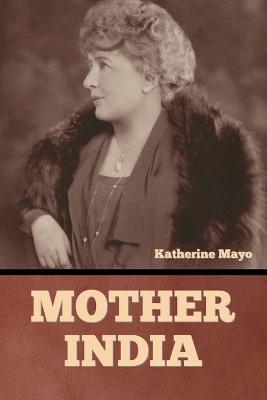Mother India

Mother India
Written in opposition to the movement for Indian independence, the book criticized India's treatment of women, the untouchables, animals, the countryside, and the character of its nationalistic politicians. A large part of the book dealt with the problems resulting from the marriage of young girls. This was considered to be one of the main causes that led to an uproar across India after many Indian newspapers declared the book "scurrilous libel" against Hindus and Hinduism.
Mayo's book created outrage across India, and it was burned along with effigies of her. Mayo's book also sparked controversy among American liberal scholars, who were also critical of Mayo. A major opponent to Mother India was Jabez Sunderland, a longtime pro-India activist. Sunderland made comparisons between Indian leaders and American revolutionaries who played a part in the fight for American freedom to counteract Mayo's racial nationalism. In his book India, America and World Brotherhood, Sunderland asserted that imperialistic rule over India was unjustifiable, parasitic, and destructive. His book included personal testimonies and statistics mainly gathered from the Indian government to counteract Mayo's claims about Indian society. Instead, Sunderland attributed the problems that Mayo blamed as intrinsic to Indian society, as symptoms "rooted in centuries of colonial oppression."
After its publication Dalip Singh Saund (who later became a U.S. Congressman) wrote My Mother India (c. 1930) to counter Mayo's assertions. Saund's writing focused largely on rebutting Mayo's claims about Indian men's behaviour towards women. Saund clarified that in the eyes of Indian law, women were seen as exact equals to men with the same rights to possess property, the same rights to go before the courts of justice and to ask the protection of the law. He also corrected Mayo's conclusions regarding child marriage in India which was a focal issue in Mother India. He noted that whilst child marriage was prevalent, the child did not cohabit with her husband until she had reached puberty. He added that although these young Indian wives may have lacked formal education, they were fully trained to run a household and to raise their children. Saund also used statistics from the Census Report of 1921 that showed that sixty percent of Indian girls remained unmarried at
PRP: 156.58 Lei
Acesta este Prețul Recomandat de Producător. Prețul de vânzare al produsului este afișat mai jos.
140.92Lei
140.92Lei
156.58 LeiLivrare in 2-4 saptamani
Descrierea produsului
Written in opposition to the movement for Indian independence, the book criticized India's treatment of women, the untouchables, animals, the countryside, and the character of its nationalistic politicians. A large part of the book dealt with the problems resulting from the marriage of young girls. This was considered to be one of the main causes that led to an uproar across India after many Indian newspapers declared the book "scurrilous libel" against Hindus and Hinduism.
Mayo's book created outrage across India, and it was burned along with effigies of her. Mayo's book also sparked controversy among American liberal scholars, who were also critical of Mayo. A major opponent to Mother India was Jabez Sunderland, a longtime pro-India activist. Sunderland made comparisons between Indian leaders and American revolutionaries who played a part in the fight for American freedom to counteract Mayo's racial nationalism. In his book India, America and World Brotherhood, Sunderland asserted that imperialistic rule over India was unjustifiable, parasitic, and destructive. His book included personal testimonies and statistics mainly gathered from the Indian government to counteract Mayo's claims about Indian society. Instead, Sunderland attributed the problems that Mayo blamed as intrinsic to Indian society, as symptoms "rooted in centuries of colonial oppression."
After its publication Dalip Singh Saund (who later became a U.S. Congressman) wrote My Mother India (c. 1930) to counter Mayo's assertions. Saund's writing focused largely on rebutting Mayo's claims about Indian men's behaviour towards women. Saund clarified that in the eyes of Indian law, women were seen as exact equals to men with the same rights to possess property, the same rights to go before the courts of justice and to ask the protection of the law. He also corrected Mayo's conclusions regarding child marriage in India which was a focal issue in Mother India. He noted that whilst child marriage was prevalent, the child did not cohabit with her husband until she had reached puberty. He added that although these young Indian wives may have lacked formal education, they were fully trained to run a household and to raise their children. Saund also used statistics from the Census Report of 1921 that showed that sixty percent of Indian girls remained unmarried at
Detaliile produsului













